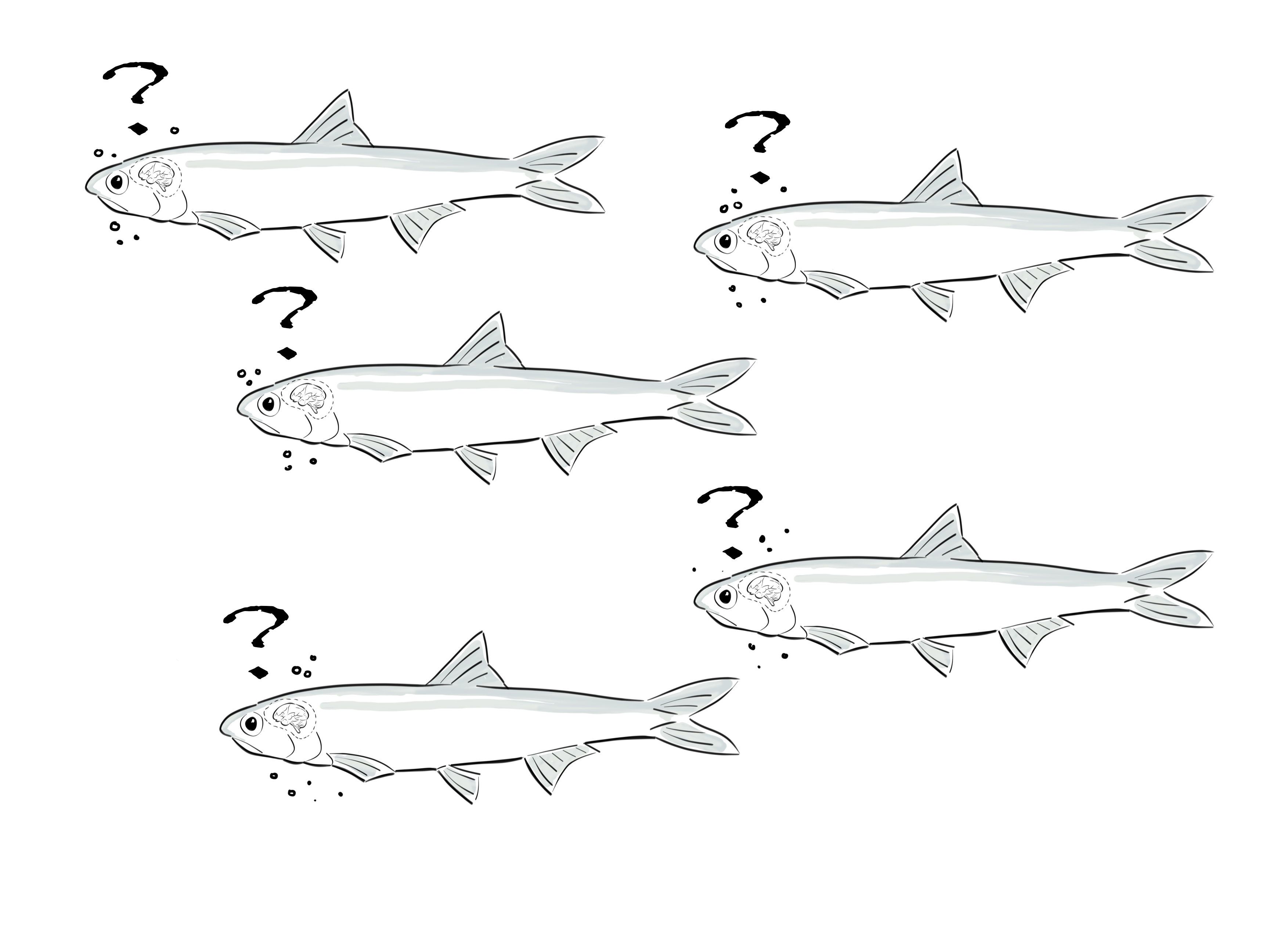ancioa
[aŋˈt͡ʃuːa]
acciuga
N + Adj/AdjP (or Adj + N)
| Genoese | Italian |
|---|---|
|
ancioa mainâ [gastr.]
[aŋˈt͡ʃuːa mai̯ˈnaː] |
acciuga marinata [gastr.]
|
|
ancioa piña [gastr.]
[aŋˈt͡ʃuːa ˈpiŋˑa]
E ancioe piñe son un mangiâ tipico da Liguria e de ben ben d’atri pòsti in sciâ riva do Mediterranio.
|
acciuga ripiena [gastr.]
Le acciughe ripiene sono una pietanza tipica della Liguria e di molti altri luoghi sulla sponda del Mediterraneo.
|
|
ancioa sâ [gastr.]
[aŋˈt͡ʃuːa ˈsaː] |
acciuga salata [gastr.]
acciuga sotto sale [gastr.]
|
|
ancioa saia
[aŋˈt͡ʃuːa ˈsai̯ˑa] |
acciuga salata
(= ‘che ha sapore sgradevole per troppa aggiunta di sale’)
|
N + PrepP
| Genoese | Italian |
|---|---|
|
ancioa in addobbo [gastr.]
[aŋˈt͡ʃuːa in aˈdubˑu] |
acciuga sott’olio [gastr.]
|
N + Prep + N (ancioa)
| Genoese | Italian |
|---|---|
|
banco d’ancioe
[ˈbaŋku d aŋˈt͡ʃuːe] |
banco di acciughe
|
|
barî d’ancioe
[baˈriː d aŋˈt͡ʃuːe] |
barile di acciughe
|
|
fietti d’ancioe
[ˈfjetˑi d aŋˈt͡ʃuːe]
Pe-a çeña de staseia ò accattou di fietti d’ancioe da accompagnâ con unn’insalatta e un bello gòtto de vin gianco.
|
filetti di acciughe
Per la cena di stasera ho comprato dei filetti d’acciughe da accompagnare con un’insalata e un buon bicchiere di vino bianco.
|
|
panetto co-e ancioe
[paˈnetˑu kweː (j)aŋˈt͡ʃuːe]
A-i mæ tempi, un panetto co-e ancioe a l’ea a menda ciù commun che se fava quande se travaggiava in pòrto.
|
panino alle acciughe
Ai miei tempi, un panino alle acciughe era lo spuntino più comune fra coloro che lavoravano in porto.
|
|
pasta d’ancioe
[ˈpasta d aŋˈt͡ʃuːe] |
pasta d’acciughe
|
V + N (DirObj or its predicative complement)
| Genoese | Italian |
|---|---|
|
desfiettâ unn’ancioa
[desfieˈtaː n aŋˈt͡ʃuːa] |
sfilettare un’acciuga
|
V + N (IndirObj or its predicative complement, or else agent complement)
| Genoese | Italian |
|---|---|
|
allevâ a resca a-e ancioe, levâ a resca a-e ancioe
[aleˈvaː (a) ˈreskei̯ aŋˈt͡ʃuːe], [leˈvaː (a) ˈreskei̯ aŋˈt͡ʃuːe] |
sfilettare le acciughe
|
|
allevâ a sâ a-e ancioe, levâ a sâ a-e ancioe
[aleˈvaː (a) ˈsaː aj aŋˈt͡ʃuːe], [leˈvaː (a) ˈsaː aj aŋˈt͡ʃuːe] |
dissalare le acciughe
pulire le acciughe dal sale
|
ancioa as (part of a) Subj or (part of a) predicative complement
| Genoese | Italian |
|---|---|
|
pai unn’ancioa
[ˈpai̯ n aŋˈt͡ʃuːa]
Ma ti ghe dæ da mangiâ a teu figgio? Mia comm’o l’é, o pâ unn’ancioa!
|
essere un’acciuga
essere uno scheletro
(= ‘essere magrissimo’)
Ma dai da mangiare a tuo figlio? Guardalo, è secco come un’acciuga!
|
ancioa as part of comparative phrasemes
| Genoese | Italian |
|---|---|
|
avei un çervello comme e ancioe [fam.]
[aˈvei̯ ŋ sɛrˈvelˑu ˈkumˑeː aŋˈt͡ʃuːe], [aˈvei̯ ŋ sɛrˈvelˑu ˈkumˑe j aŋˈt͡ʃuːe] |
avere il cervello come le acciughe [disus., fam.]
avere un cervello da gallina [fam.]
(= ‘essere persona stupida, tarda di comprendonio’)
|
|
ëse secco comme unn’ancioa
[ˈeːse ˈsekˑu ˈkumˑe n aŋˈt͡ʃuːa] |
essere secco come un’acciuga
essere magro come un grissino
(= ‘essere magrissimo’)
|
|
ësighe schissou comme e ancioe inti barî
[ˈeːsige skiˈsɔu̯ ˈkumˑeː aŋˈt͡ʃuːe ŋti baˈriː] ~ [ˈeːsige skiˈsɔu̯ ˈkumˑe j aŋˈt͡ʃuːe ŋti baˈriː]
À st’oa chì in sciâ metropolitaña se ghe stà delongo schissæ comme e ancioe inti barî.
|
essere schiacciati come in una scatola di sardine
(= ‘essere appiccicati l’uno all’altro in qualche luogo per mancanza di spazio’)
A quest’ora in metropolitana si sta sempre schiacciati come in una scatola di sardine.
|

«Avei un çervello comme e ancioe».
[ZE] O scignificato de l’esprescion comparativa, quello de ‘ëse tocco’, ‘ëse tögno’, o l’é rappresentou da un banco d’ancioe co-o çervello piccin, e donca con unna çerta incapaçitæ pe di raxonamenti complesci.
[IT] Il significato dell’espressione comparativa è rappresentato da un banco d’acciughe dal cervello minuto e, di conseguenza, incapaci di ragionamenti complessi.
[EN] The meaning of this comparative expression (“to be bird-brained”, lit. “to have a brain like an anchovy”) is represented by a shoal of anchovies with tiny brains, which are consequently deemed incapable of complex thoughts. This is emphasized by the silly looks on the anchovies’ faces and the question marks above their heads.
[DE] Die Bedeutung dieses komparativen Phrasems (‘ein Spatzenhirn haben’, wörtl.: “ein Hirn wie eine Sardelle haben”) wird durch einen Schwarm Sardellen mit kleinem, menschlich aussehendem Gehirn, dümmlichem Gesichtsausdruck und einem Fragezeichen oberhalb des Kopfes dargestellt, womit zum Ausdruck gebracht wird, dass sie zu keinen komplexen Gedankengängen fähig sind.
[ZE] O scignificato de l’esprescion comparativa, quello de ‘ëse tocco’, ‘ëse tögno’, o l’é rappresentou da un banco d’ancioe co-o çervello piccin, e donca con unna çerta incapaçitæ pe di raxonamenti complesci.
[IT] Il significato dell’espressione comparativa è rappresentato da un banco d’acciughe dal cervello minuto e, di conseguenza, incapaci di ragionamenti complessi.
[EN] The meaning of this comparative expression (“to be bird-brained”, lit. “to have a brain like an anchovy”) is represented by a shoal of anchovies with tiny brains, which are consequently deemed incapable of complex thoughts. This is emphasized by the silly looks on the anchovies’ faces and the question marks above their heads.
[DE] Die Bedeutung dieses komparativen Phrasems (‘ein Spatzenhirn haben’, wörtl.: “ein Hirn wie eine Sardelle haben”) wird durch einen Schwarm Sardellen mit kleinem, menschlich aussehendem Gehirn, dümmlichem Gesichtsausdruck und einem Fragezeichen oberhalb des Kopfes dargestellt, womit zum Ausdruck gebracht wird, dass sie zu keinen komplexen Gedankengängen fähig sind.